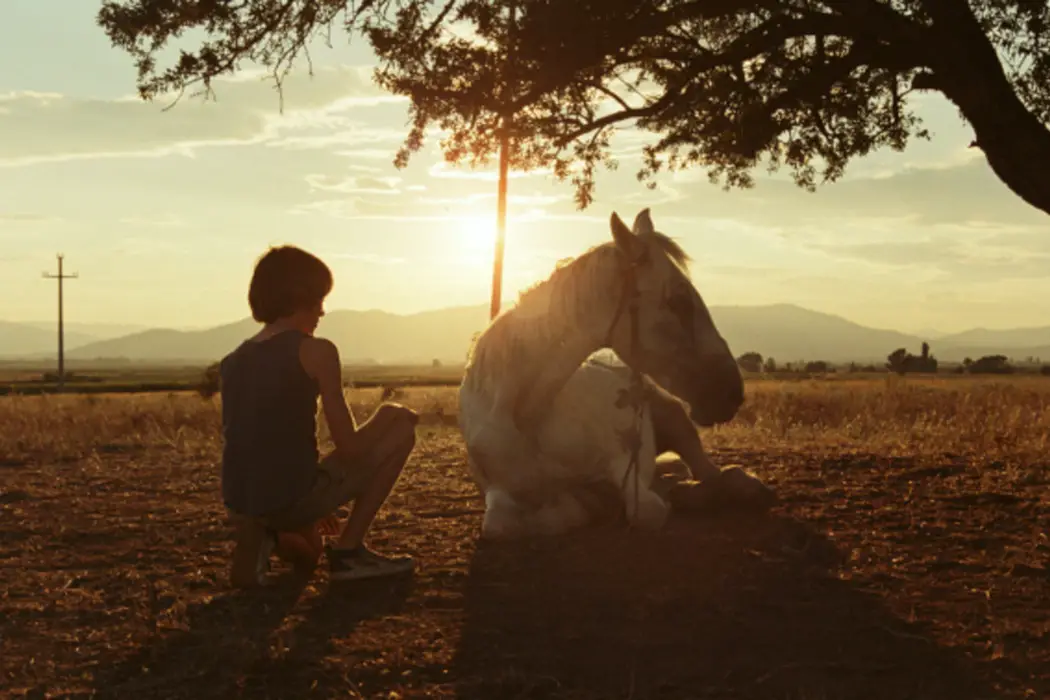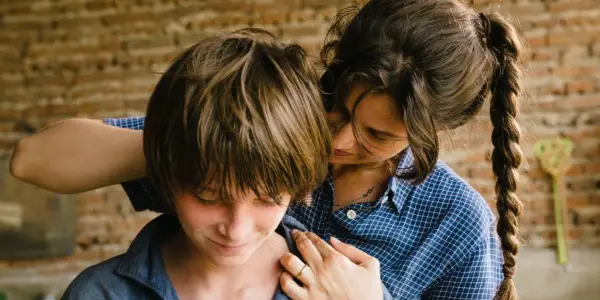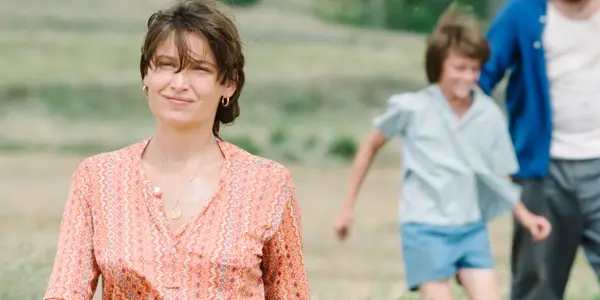EUFF 2020: BEYOND THE HORIZON: Observation over Dictation

Ram is an independent film critic trying to combine his…
Beyond the Horizon (Le milieu de l’horizon) is the kind of film in which nothing major happens but everything is happening in plain sight. Also, the script observes the characters instead of dictating their moves. It’s laid back, from the setting to the filmmaking technique, nothing is extrinsic. Neither does it try to adhere to the minimalistic story-telling techniques. The primitiveness is rather glued in the atmosphere it creates. The film is set in an unspecified rural European territory in the summer of 1976 which, I just discovered, was considered one of the most sweltering summers in Europe, consequentially resulting in a drought. Not an ideal summer for a 13-year old Gus (Luc Bruchez, in his acting debut), who is starting to experience sexual urges, to spend.
Micro Conflicts Amidst Macro Challenges
There is a recurring line in the film, telling how the temperatures are much higher in the interiors, thereby making Gus spend the majority of his day outside. This is a hint at the tensions inside the house between family members due to external factors. Gus’ father, Jean, has invested a substantial part of his savings in a chicken farm and the summer hasn’t been kind to them either. As the number of chickens dying each day continues to soar in proportion with rising levels of temperatures, the financial burden only adds to the existing unease in the family.

The dining table conversations are a prominent plot device for character development in films depicting dysfunctional families, ranging from Whale Valley, an obscure Icelandic short, to The Tree of Life, a major American picture. Beyond the Horizon is no exception. The dinner conversations get colder with each passing interval, inversely influenced by the rising mercury levels. Every time the family – Gus, his father Jean, mother Nicole, sister Léa, and cousin Rudy – gather for the meal, something new, muddier than the previous dinner, happens. And watching the dining table scenes, excluding the narrative between each one of them, would still make up for a coherent character graph.
Invigorated by Fly-on-the-wall Treatment
Throughout Delphine Lehericey‘s film, on the outside, there is a sense of abandonment, physical isolation, and separation. And some of these penetrate character arcs as well, although they are not spelled out. I said the film is more of an observation than dictation. This is what I mean. For instance, Gus seems to be emotionally disjointed from the family, as his father’s financial constraints or his sister’s life is of little interest to him. At a point he sees his mother making out with her female friend Cécile (played by Clémence Poésy), towards whom, at a point, a slight sexual desire is hinted.

A disgusted Gus never meets eye to eye again with both of them. However, when a friend of his picks on the sexual orientation of Nicole, although he is repelled by his mother, he defends her by physically affronting his friend for speaking in low regard. Here, is it his mother he is defending, or is it his ego? Nevertheless, he is too young to label his behavior toxic masculinity, but these are indications of the kind of person he will likely grow up to be, especially assaulting his friend.
Tweaking the Beaten-to-Death Genre
After all, it’s a coming-of-age film following a troubled childhood, and the genre definitely has an overabundance of films. This one, too, is by the book, and it is, in fact, loosely based on Roland Buti‘s 2014 book The Year of the Drought. As opposed to a traditional coming-of-age story, in this case, the main character is not exactly likable, and perhaps that’s because we, the adult viewers, have a clear distinction of what’s right and wrong. Gus doesn’t. The film’s ending makes an allusion to the change, thus conforming to the coming-of-age requisite. The route it takes to arrive there, though, is often knobbly, but not temper-testing.

Beyond the Horizon is a worthwhile viewing experience, if not life-affirmative, neither does it try to be one. Perhaps, that’s what I liked the most about it. It doesn’t judge Gus, the muddled young boy, his father, a cold patriarch with an inkling of sympathy, Léa, a seemingly detached lady who turns out to be the most lovable person in the family. The film doesn’t pretend like it’s here to change your life and affirms that age plays the healer. Something that we all can use to get past the mistakes we continue to make.
Beyond the Horizon: Conclusion
Beyond the Horizon is almost a traditional coming-of-age story that operates in accordance with the rules of the genre, but is set apart by its humanistic twist to the unsettled, flawed leading man, err, boy.
What are your favorite coming-of-age films? Let us know in the comments below.
Does content like this matter to you?
Become a Member and support film journalism. Unlock access to all of Film Inquiry`s great articles. Join a community of like-minded readers who are passionate about cinema - get access to our private members Network, give back to independent filmmakers, and more.
Ram is an independent film critic trying to combine his love for films and writing, to give readers something more than just an opinion.













